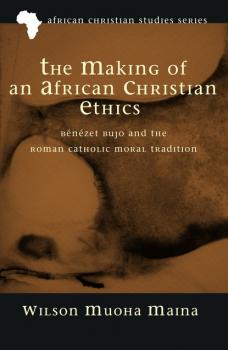Wilson Muoha Maina
Список книг автора Wilson Muoha MainaHistorical and Social Dimensions in African Christian Theology
African Christian theology has been developing for the last four decades. The trend has been to focus on traditional African religions as a foundation for Christian theology. While acknowledging the importance of African traditional religions to Christian theology in Africa, this study argues that African history progressively changes, and it is these changed and changing circumstances that theology is to address. This work analyzes issues affecting Africa today and shows the social and political role that Christianity has to play in an African context.
This study views enculturation as a dialogue among African Christians, their history and culture, and Christian teachings. Theological approaches such as anthropological, liberation, and historical are analyzed from the perspective of Small Christian Communities (SCCs), which are a recent development in African Christianity. SCCs are presented as a concrete hermeneutical tool in theological analyses. Further, this work acknowledges the indispensable need for an authentic African Christology in an African Christian theology. While critical of contemporary African Christology, the study also suggests issues to be considered in the development of African Christology.
The Making of an African Christian Ethics
An exploration of the development of a contextualized Roman Catholic moral theology in an African context is warranted in our day. This book is a study of the work of Benezet Bujo, an African moral theologian. An analysis of Bujo's work shows the various aspects of an African Catholic moral theology. Bujo's work is viewed here as critically bridging African moral theology and the development of moral theology in the Catholic Church, especially in the West. An African moral theology in this work builds on the elements of the renewal of moral theology after the Second Vatican Council. The renewal elements reflected in Bujo's work and other African Catholic theologians include, among others, the use of Scripture, the relevance of history, the debate on moral norms, the relevance of social sciences to moral discourse, the theory of natural moral law, and the relation between the theologian and the magisterium. This work, therefore, locates the theology of Bujo in the development of moral theology after the Second Vatican Council. The author establishes a relation between African traditional religions, African history, Christology, natural moral law, moral autonomy debate, the encyclical Veritatis Splendor, and political-liberation theological ethics.

